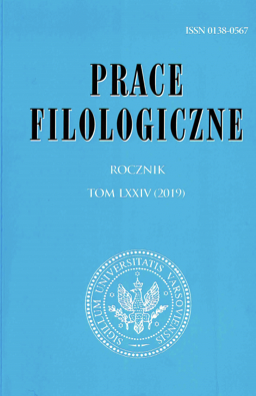Súvisí slk. kántriť s poľ. dial. kętrzyć, kętrać?
Is Slovak kántriť Related Etymologically to Polish Dial. kętrzyć, kętrać?
Author(s): Ľubor KrálikSubject(s): Historical Linguistics
Published by: Wydział Polonistyki Uniwersytetu Warszawskiego
Keywords: Slavic languages; Slovak language; Polish language; etymology; semantics ‘kill; destroy’
Summary/Abstract: Slovak kántriť ‘kill, exterminate; ravage, devastate, destroy; cause spiritual suffering’ (first attested in A. Bernolák) has no convincing etymology. V. Machek and F.Sławski compared this word to Polish dial. kętrać ‘do something in an indecent, immoral way’, kętrzyć ‘commit adultery’ (perhaps related to Kashubian kątor ‘toad’; from German kunter, kunder ‘monster’?). – In the author’s opinion, kántriť is a denominative of Slovak kántry plt, older kántor sg ‘(in the Roman Catholic church) three days at the beginning of the seasons ordered as days of fast, prayers and repentance, Ember days’ (attested since the 17th century) < Latin quattuor (tempora) ‘four seasons’. Originally, kántriť was probably an intransitive verb (*‘observe the Ember fast’) from which the reflexive kántriť sa was derived (literally ‘«ember» oneself = to afflict, torture, destroy oneself [with {Ember} fasting, i.e. with hunger]’); finally, its transitive correlate kántriť‘destroy, kill, ravage (somebody/something), etc.’ also came into existence. Therefore, as a word created in Slovak, kántriť should be separated etymologically from the above-mentioned Polish lexemes; at the same time, the assumption that Polish dial. skantrzyć‘kill, strangle’ was borrowed from Slovak perf. s-kántriť (F. Sławski) may be validated.
Journal: Prace Filologiczne
- Issue Year: 2019
- Issue No: 74
- Page Range: 257-265
- Page Count: 9
- Language: Slovak

